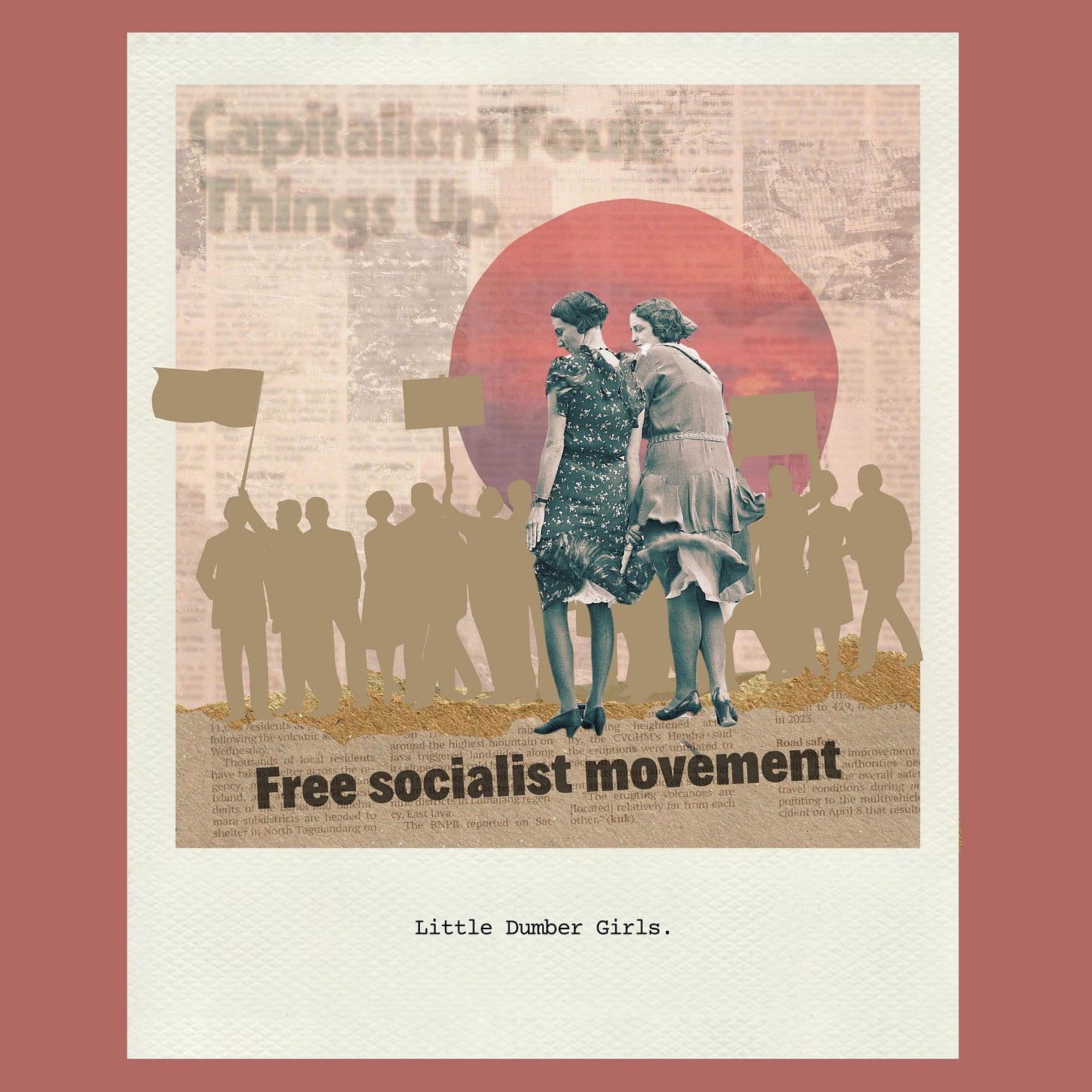
Kathie and I were kindred spirits. Despite being good students and popular with our peers, we shared a deep anxiety about the state of the world. We took turns as co-editors of the school newspaper writing angsty and depressing editorials.
My mother confronted me with a copy of the school newspaper that she found in my room.
“Is this how you really feel about life?”
She appeared genuinely worried, so I reassured her that it was just a put-on for the benefit of teachers who liked that kind of thing. In reality, I was obsessed with the threat of nuclear war (Cat’s Cradle), environmental degradation (Silent Spring), racial inequality (I Know Why the Caged Bird Sings), suicide (The Bell Jar), being murdered in my bed (In Cold Blood), and the burden of being born female (The Feminine Mystique).
All of the books I read were recommended by my mother who declared she really enjoyed them. I shared all these selections with Kathie, and we would sleep over at each other’s houses and talk long into the night about what it all meant and what we could do about any of it. Our sixteenth year was one long, protracted existential crisis. We finally had a label for what we were feeling, having read Camus.
Then we were invited to spend a weekend in Kingston with Kathie’s cousin. Bronwen was studying English Literature, was a Marxist Feminist and a poet. She was everything we hoped to grow up to be.
After an exotic dinner of lentil stew, Kathie and I sat in the living room with Bronwen and her friends passing around joints and talking about socialism. We learned they all belonged to the Free Socialist Movement and wanted to spread Marxist doctrine to high school students. Kathie and I looked at one another. We were being brainwashed AND recruited. Cool!
Clearly, the gang in the room had no idea what life was like at Sydenham High School. A rural high school serving a few hundred farm kids, Sydenham was not exactly ripe for Marxist conversion. Never mind, we were willing to give it a go. We were grateful we had choices, and we could take action.
The world indeed needed fixing but how could you personally effect change? There was no consensus in the room that night. Should you work from within to change policies and institutions? Should you take a more anarchical route and start taking people hostage? Burning down buildings? Putting cement mix in the toilets of public buildings (my personal favourite)?
Kathie and I returned from our weekend of indoctrination completely fired up. Our grief and rage about the state of the world was now channelled.
We arranged a meeting with Mr. Milsap the faculty advisor for the school newspaper and student clubs. He was also Vice Principal and the Agriculture teacher.
Mr. Milsap was a gentle man with an open mind. We explained we wanted to set up a chapter of the Free Socialist Movement at Sydenham. He was skeptical.
“Is that like communism?” he asked.
Actually, it was exactly like communism, but I hedged.
“It’s more like Tommy Douglas-type stuff,” I offered.
I knew that farmers, even Conservative farmers, melted at the mention of the former Baptist Minister from Saskatchewan turned politician, who is thought of in Canada as the father of universal health care. I knew as well that Mr. Milsap had a soft spot for me. I had taken his classes in Agriculture for two years and was his top student, especially on issues related to livestock.
Kathie and I continued through that year to churn out radical—at least in our minds—articles for the school newspaper and established a socialist students club, which had four members, including the two of us.
Those early seeds of activism never stopped growing. Over the decades, my methods have evolved, but my core drive hasn't changed. I have chosen to work from within the system even though deep down, I know that the system is rigged. I have demonstrated, petitioned, blogged and written speeches and articles. I have worked in shelters and food banks in Canada and overseas and toiled on political campaigns for relentlessly losing candidates. I have worked on women’s issues, children’s issues, anti-poverty programs, micro-financing and environmental protection programs. Yet I feel I am always nibbling at the edges.
All that protest, all that activity, all that work has, maybe, served to enable a fundamentally corrupt system by alleviating the hardship it spawns. I don’t know what else to do. I am keeping a bag of cement handy in case I completely run out of patience.






Loved this story. I laughed out loud several times, especially about the cement.You go girl! I too thought the world could be changed for the better and have demonstrated and written articles and letters and lobbied etc. Some things have gotten better, but look at the state of the world now. As someone once said to me, when there was a setback in the cause I was fighting for, first we mourn and then we act. Good words for these times.
Resistance matters. If it is compounded as you have done over your lifetime, influencing many along your way, the world is left a better place than if you had not worked to alter this rigged system. You have made a difference. Just make sure the cement is made in Canada please.